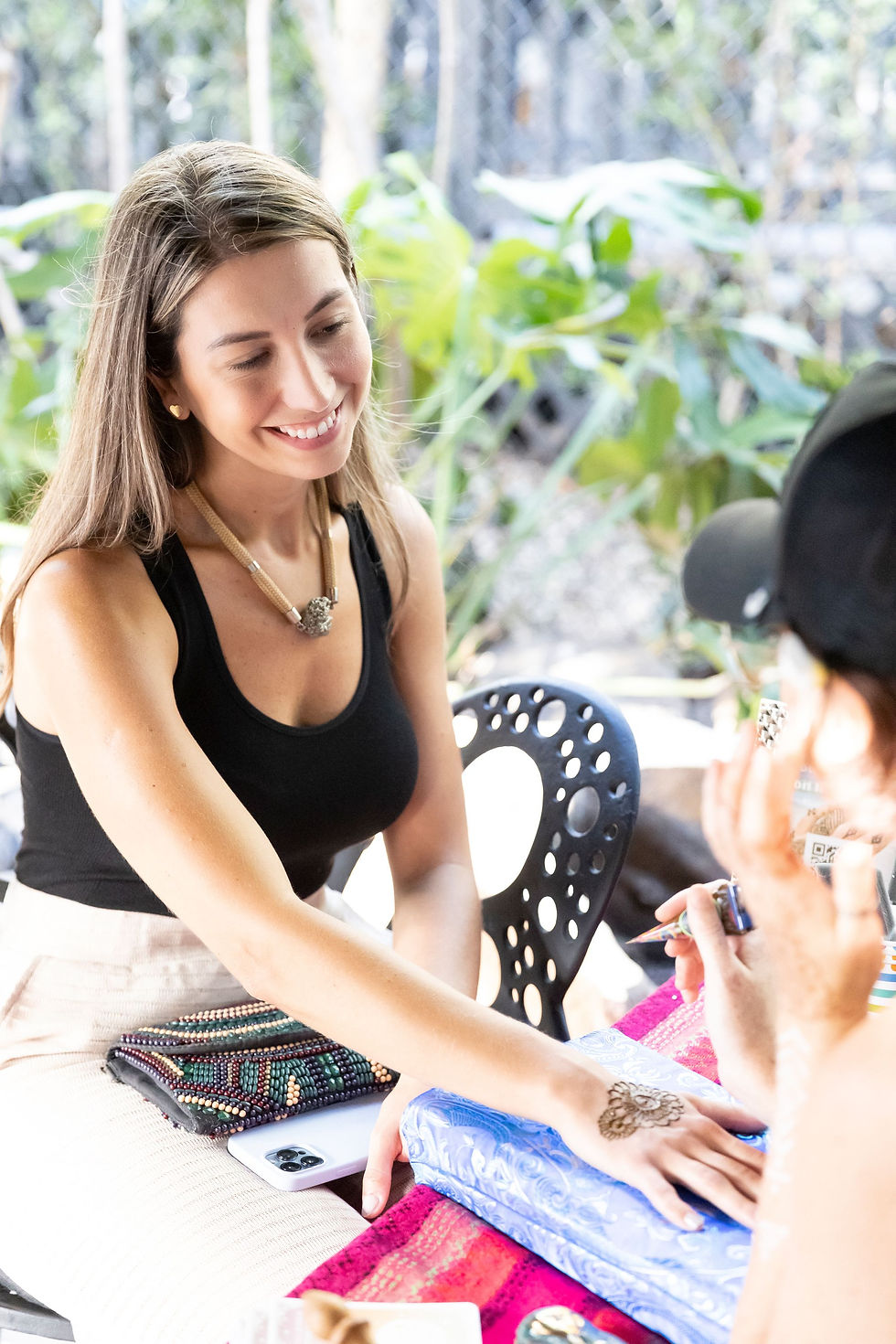"Black henna", culture & colonialism. What gives?
- Mishelle Wade

- Aug 13, 2019
- 4 min read
Updated: Sep 24, 2020
The Internet can be a beautiful, scary place. I will often find myself down dark rabbit holes of depressing news stories that can cause a deep sadness within me and then BAM I’m watching clips of cute puppies or paint being mixed! This blog post has to do with culture,"black henna" & xenophobia. It is inspired by the current state of the world and the interconnectedness of everything.
First off, what the heck is "black henna"?
"Black henna" is not henna per se, but a chemical dye used in place of natural henna. There is nothing plant-based about it. It often has PPD & other chemicals and solvents in it. Paraphenylenediamine (PPD) is a chemical substance that is widely used as a permanent hair dye. PPD was declared the Contact Allergen of the Year for 2006 by the American Contact Dermatitis Society (ACDS). It is NOT totally safe for the hair and therefore not safe nor intended for use on skin. As you know, our skin absorbs what we put on it. You could be scarred for life depending on the concentration of PPD in your paste. "Black henna" is banned in many countries. It is important to recognize the difference between this product and natural henna and be aware of what products you put on your body. "Black henna" will smell like chemicals, and the design will stain black instantly and last for a long time.. If you are unlucky you might experience hives, blistering, or scarring. PPD was developed in France and brought to countries all over the world as a product of colonization.
Everyday I meet amazing friends who find me online through my henna designs and message me about their culture, country and religion. We share ideas, information and find how similar we are even if on the exterior I look wildly different wearing crop tops and short shorts or sharing almost nude pics and my friend is a Hijabi.
The other day I was messaging a friend in Turkey & she kindly explained to me an element of her culture that never occurred to me. She explained why "black henna" is so popular in her Country. (And I’d venture in many places where henna is traditionally in their respective culture.) It is because "black henna" is seen by some as more modern, therefore desirable. A deviation from traditional ways, an innovation. A light bulb went off in my head! I grew up and rebelled against the “outdated” traditional ways of my grandparents at times, it made sense! My family is your typical large Irish Catholic family, devout Church Catholics that love their alcohol. When I visited Ireland last year, the traditional conservative ways were clashing with the ideas of younger generations. College students all over the island were rebelling against the strict Catholicism and campaigning for pro-choice. I remember sitting on the bus and seeing older folks cross themselves each time we passed a cemetery. (Which is OFTEN by the way, in Ireland LOL!) I could see the stark difference between the generations. As I reflected on my own experiences, I realized how much we have in common globally. A universal truth, we are all alike. Everything is cyclical. Younger generations within a culture inevitably rebel or want to change it/ modernize it in some ways and then the non-native outsiders rush in to preserve it, and think they are superior! Of course there is always exceptions.
So is this observation considered progress or loss of cultural identity? I think every situation calls for a different reaction. Some practices are outdated and maybe even problematic for a reason as social norms change. For example, the practice of animal sacrifice to read the animals' entrails and decipher a message. Society has “progressed” in many ways but there is still a disconnect. Regarding the prevalent use of "black henna" in many countries where henna is traditional: Africa, India, Turkey, Pakistan etc, I understand it yet cannot condone it. Moving from natural plant-based henna to manufactured, chemically laced dye doesn’t seem like progress to me. Chemical henna is at its core is product of colonialism and industrial exploit of a traditional practice.
My goal is to encourage everyone to safely embrace culture, dig deeper, ask questions and share the beauty! It is up to everyone to preserve traditional customs. On the other hand, I also encourage you to reject parts of your culture/ heritage or history that do not sit right with you. Just because something is cultural or traditional does not mean it is universally ethical. I make judgments using my own moral compass, not just because “this is what I am, this is what I know, this is what they told me.”
I believe we are all the same in humanity with different life experiences. In summary, I would never condone "black henna" but I will recommend jagua if anyone’s looking for a natural, darker tattoo-like stain! We can only make positive changes with positive attitudes. Going back to traditional ways can be liberating and scary. I know because I have tried so many things I have been told are not for me. I am so grateful for my henna family across the world that has embraced me! My guide is to be kind to everyone, do not attack because someone is doing something different. Embrace your global family despite differences knowing that each of us has the same beautiful light within!





Comments